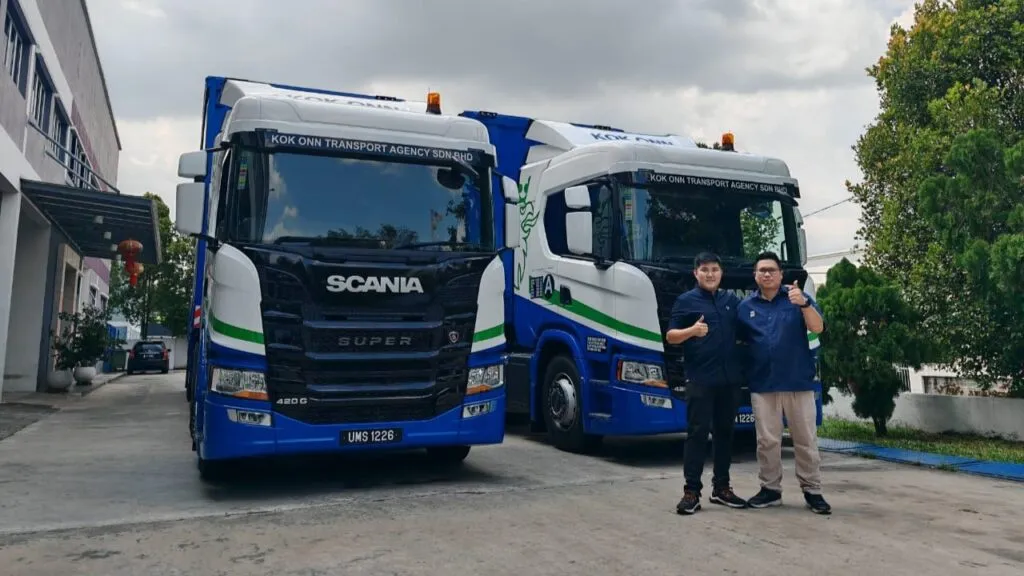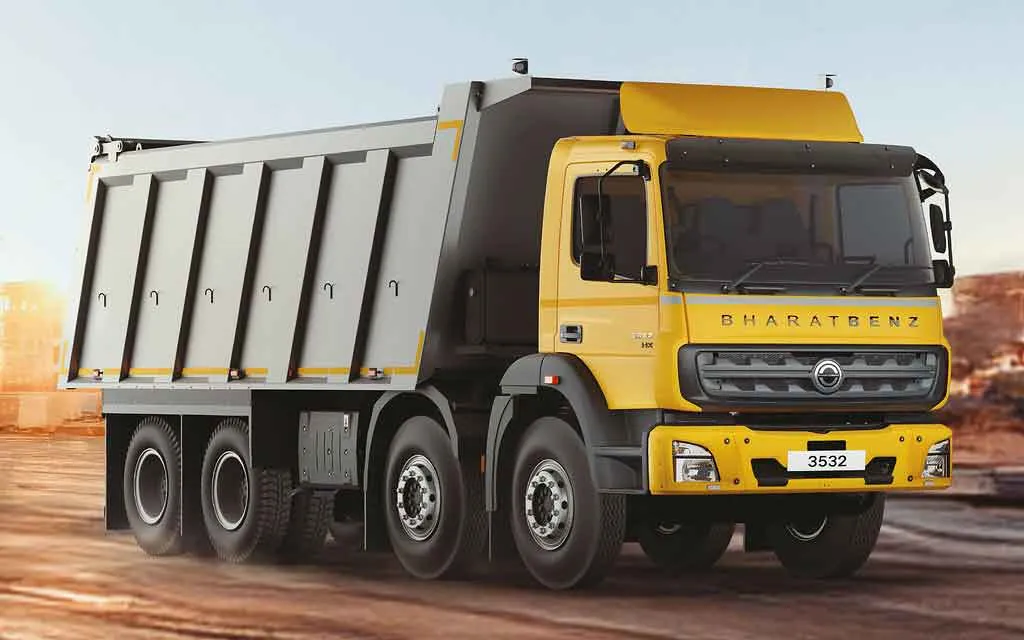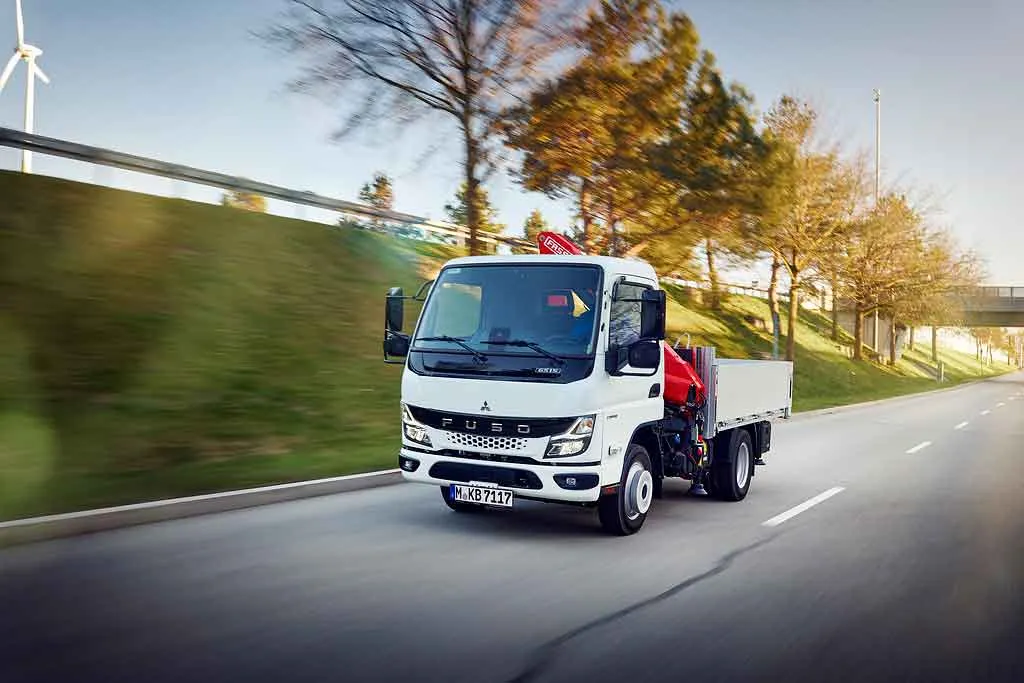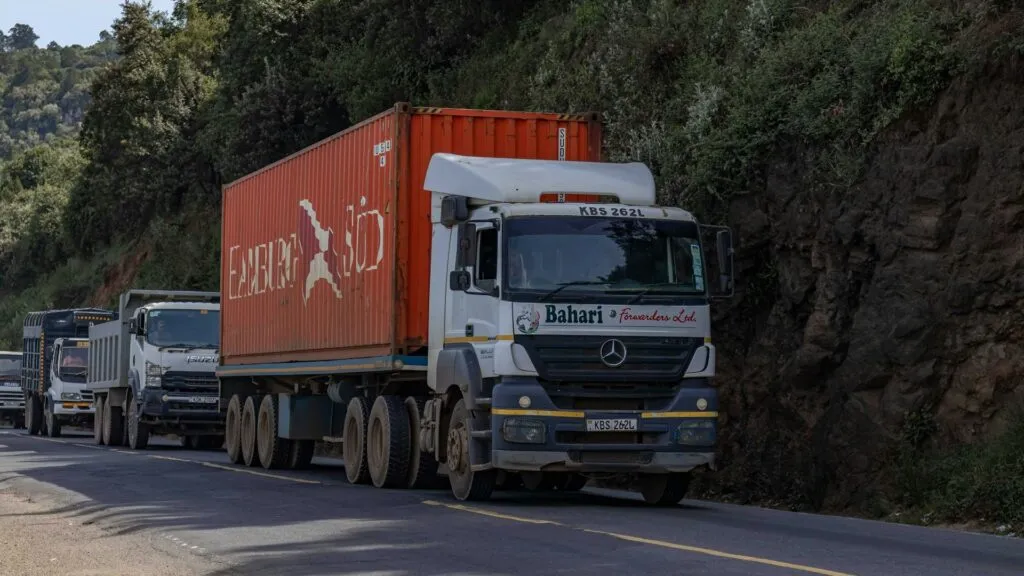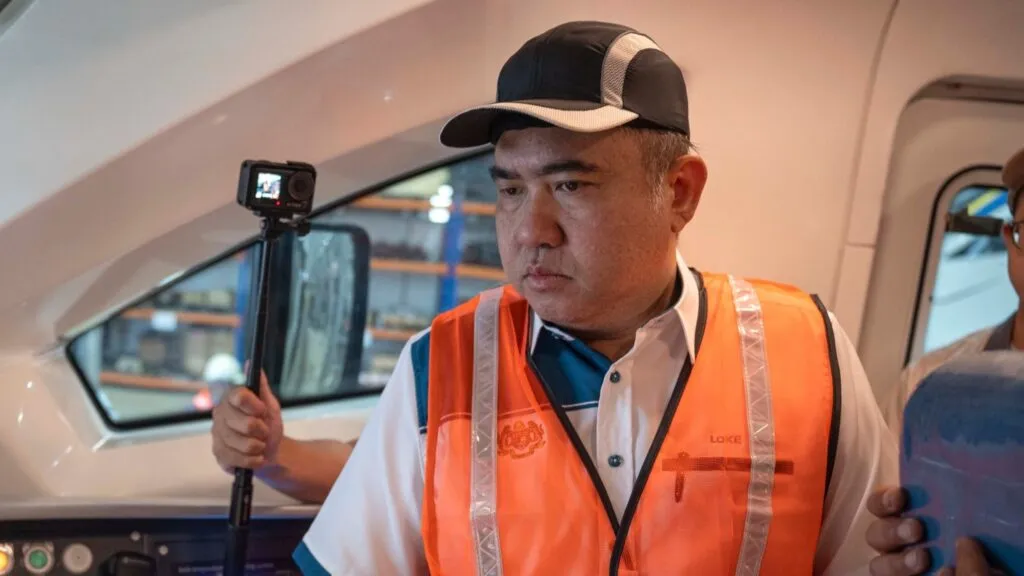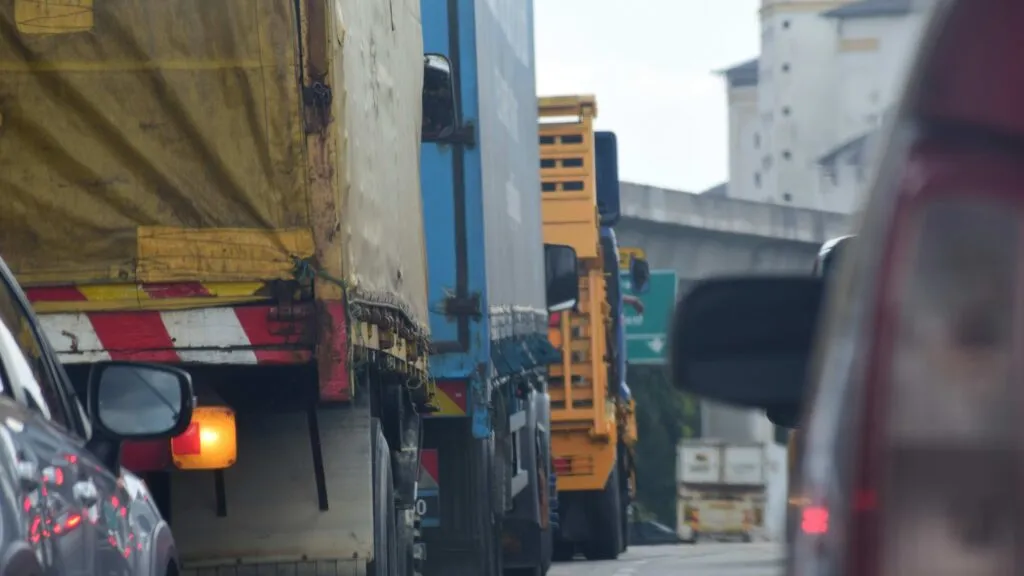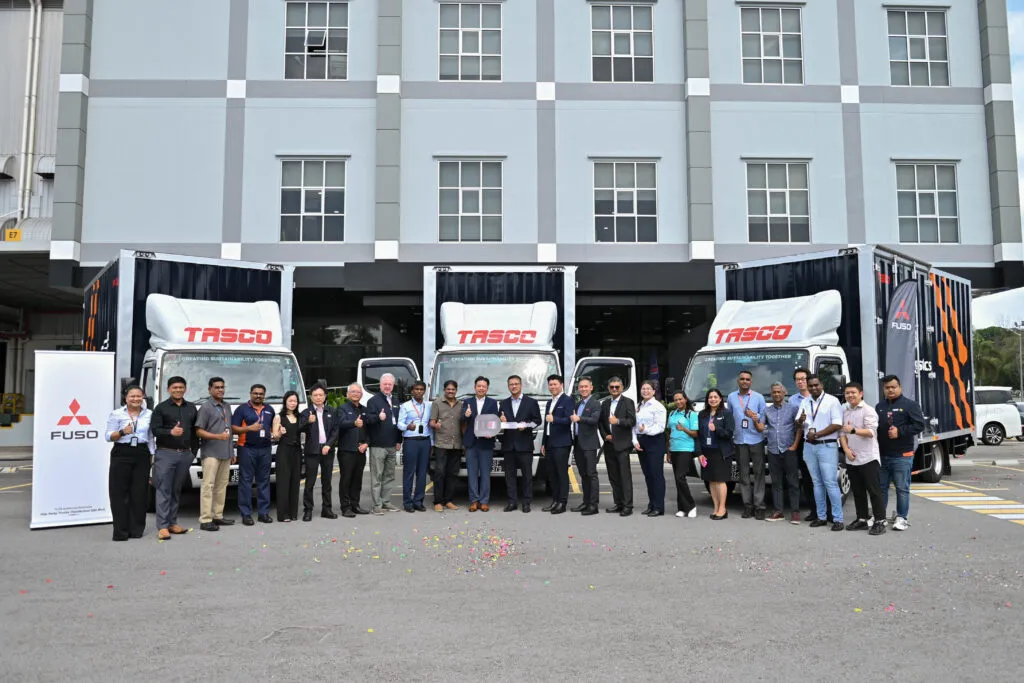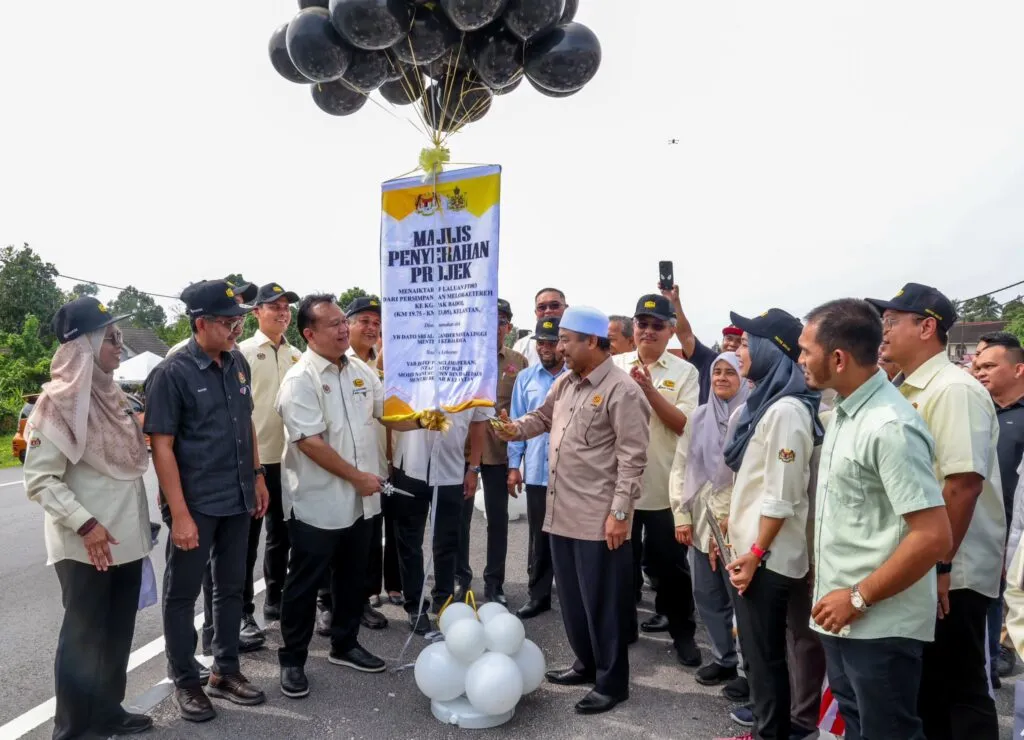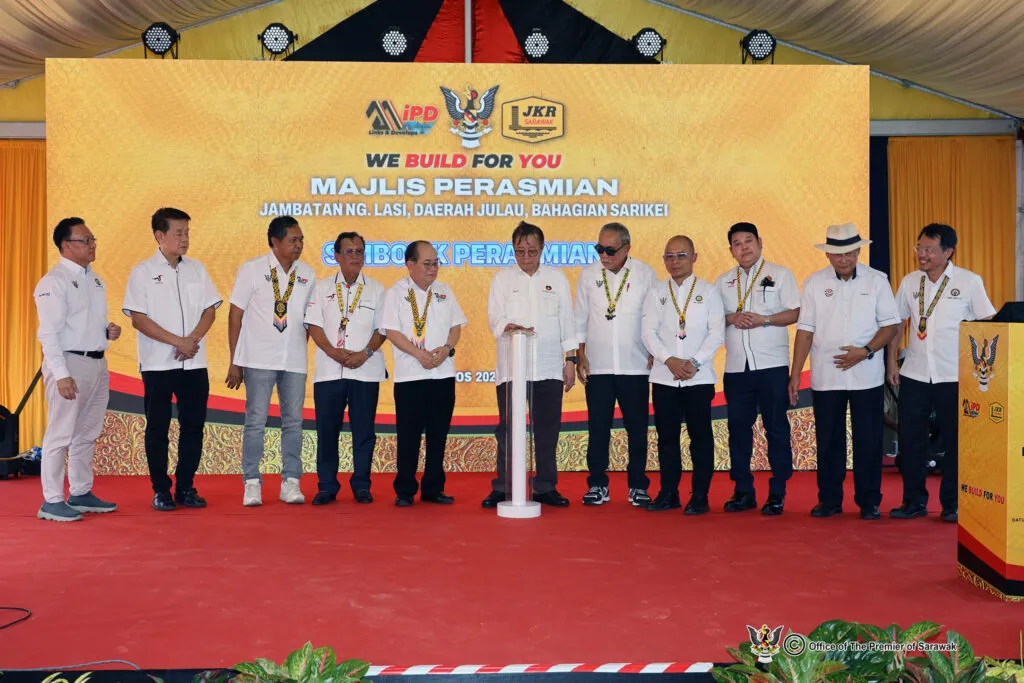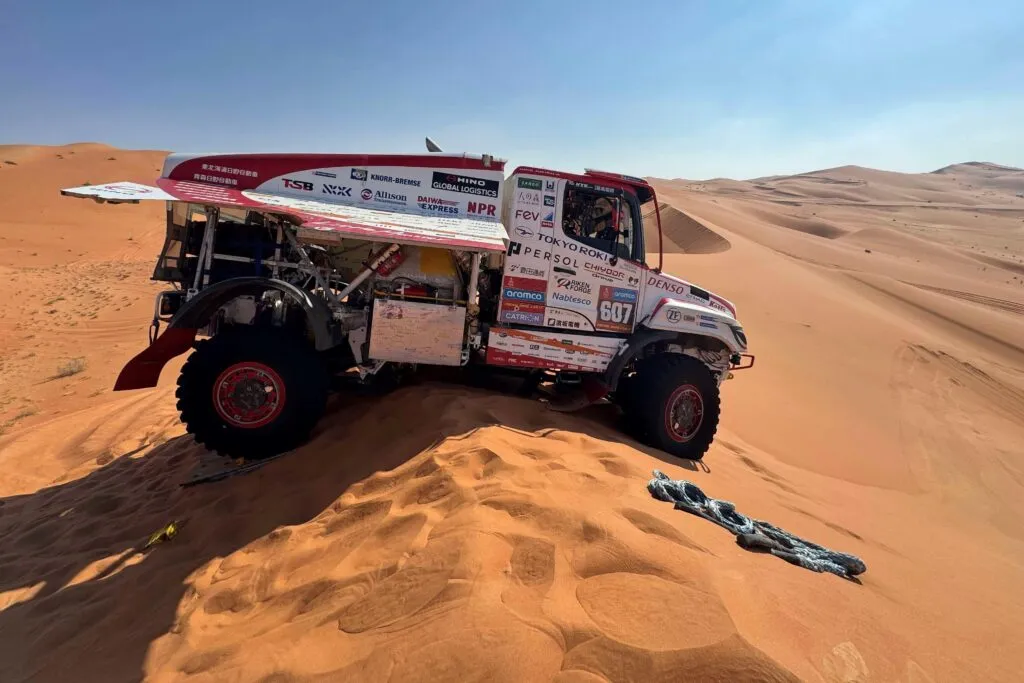Scania Malaysia delivers new trucks to MyGaz, KGF Logistics, and Kok Onn, and a new bus to long-time partner Sri Maju.
Each of the New Customer Purchased a Different Kind of Truck
Scania Malaysia announced on August 20, 2025, that three companies—MyGaz Sdn Bhd, KGF Logistics Enterprise, and Kok Onn Transport Agency Sdn Bhd—had just acquired their first Scania vehicles. At the same time, long-time partner, Sri Maju, also acquired a new Scania bus.
Each of Scania‘s new customers purchased a different kind of truck. MyGaz purchased two units of Scania P410A6X2NA Bulk ADR Transport, engineered for fuel efficiency and environmental sustainability. The truck’s powertrain and aerodynamic design help reduce CO₂ emissions, while the air suspension enhances driver comfort and minimises fatigue.
MyGaz’s new Scania P410A6X2NA Bulk ADR Transport is also equipped with an Electronic Level Control function, which enables the vehicle’s height to be adjusted to facilitate loading and unloading, manage swap bodies, and connect tankers.
Ir. Mohd Hasni Mohd Tamin, Plant Manager of MyGaz Sdn Bhd, received the key to the trucks from Rini Sabir Mässgård, Dealer Director of East Region, during the handover ceremony.
In other news, KGF Logistics acquired a brand new Scania Super G460A6X2HZ, which sets a new industry standard with its exceptional torque at the lowest RPM. Its 13-litre six-cylinder engine produces 2,500 N · m at 900RPM, and this means that this powertrain can deliver fuel savings of up to 8 per cent.
The Scania Super G460A6X2HZ is also equipped with Side Curtain Airbags, Steering Wheel Airbag, Electronic Brake System (EBS) featuring Anti-Lock Braking System (ABS), and Traction Control (TC) as standard safety measures. The handover ceremony itself was attended by Kamalanatan Krishnasamy, Managing Director of KGF Logistics Enterprise, and Mohd Nazri Mohamad, Solution Sales Executive of Scania Malaysia.
Kok Onn, on the other hand, acquired two units of the Scania Super G420A6X2NA, which have similar features to KGF Logistics’ Scania Super G460A6X2HZ. Edmond Wong, Managing Director of Kok Onn Transport Agency Sdn Bhd, received the trucks from Vincent Lim, Solution Sales Executive of Scania Malaysia, during the handover ceremony.
With their purchase, the three companies also gained access to three different Scania services: Scania Repair, Maintenance Contracts, and Scania Digital Services. Scania Digital Services include Scania Fleet Management System Control Package—allowing the companies to receive valuable insights into their vehicles, including real-time positioning, vehicle performance, CO₂ emissions, service planning, defect reporting, and driver evaluation—Scania Driver app, and ProDriver.
Meanwhile, Sri Maju just purchased a new Scania New Bus Generation, which offers up to 9 per cent savings in fuel consumption and emissions, using Scania Financial Services. The bus also features a reinforced chassis and the latest addition to its standard safety systems—Lane Departure Warning (LDW). These complement existing systems such as the Electronic Braking System (EBS) with Anti-lock Braking System (ABS), and Traction Control.
Wendy Shin, Chief Executive Officer of Sri Maju, received the key to the bus from Wong Nyook Lin. Dealer Director of the North Region of Scania Southeast Asia, during the handover ceremony.

